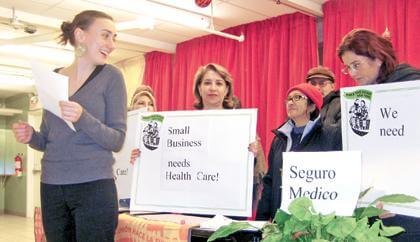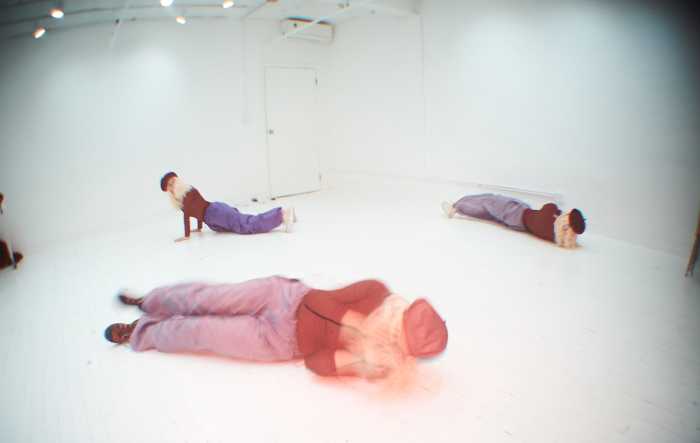By Jeremy Walsh
A group of small business owners in Queens and Brooklyn are reminding the state’s congressional delegates that President−elect Barack Obama’s message of change includes health coverage.
With help from the immigrant advocacy group Make the Road New York, more than 200 entrepreneurs in immigrant−heavy neighborhoods like Woodside, Sunnyside and Bushwick, Brooklyn, are publicizing their call for quality, affordable health care with government oversight in a plan that will include immigrants and those with pre−existing medical conditions.
“Our health care system should be transparent to the public and not structured to maximize profits for insurers,” said Make the Road organizer Sara Cullinane at a news conference last Thursday in Woodside, where business owners described their difficulties obtaining or keeping coverage for their workers.
Carmen Ledesma, who has owned the Parisien Salon in Woodside for 15 years, said she has never been able to afford health insurance for herself or her employees. Now that she is planning on expanding her shop, she worries that she will be unable to attract a competitive staff without health care.
“I am willing to pay 4 percent to 6 percent of my payroll towards health insurance, but I want the government to force health insurance companies to behave in a way that is equitable and fair to all.”
The average amount small businesses currently spend on health insurance is 10 percent of payroll, Cullinane said.
A 2008 Kaiser Family Foundation survey of businesses nationwide showed that the amount an employer pays for health insurance coverage has increased 119 percent since 1999, while the employee’s contribution has grown by 117 percent.
Maria Galeano and her husband own Galeano Upholstery on Skillman Avenue in Sunnyside. She said they lost publicly funded health insurance for their business when they expanded their operation two years ago.
Since then, she said, she has had to return to her native Colombia for glaucoma surgery because the medical expenses in the United States are prohibitive.
Most business owners in the coalition do not have insurance, Cullinane said. But one accountant does. Graciel Cordova, who runs a bookkeeping business in Elmhurst, has private insurance for herself. Unfortunately, its coverage is limited.
“It’s not very expensive, but it doesn’t cover many things,” she said. “If I go to the hospital, I have to pay $500 in advance.”
The coalition is currently focusing its efforts strictly on a Democratic−majority Congress and a future president whose own health care agenda closely resembles the group’s own demands.
“If we can get extended state coverage, that’s great,” Cullinane said. “But now is the moment when federal reform is a real possibility.”
Reach reporter Jeremy Walsh by e−mail at jwalsh@timesledger.com or by phone at 718−229−0300, Ext. 154.



































